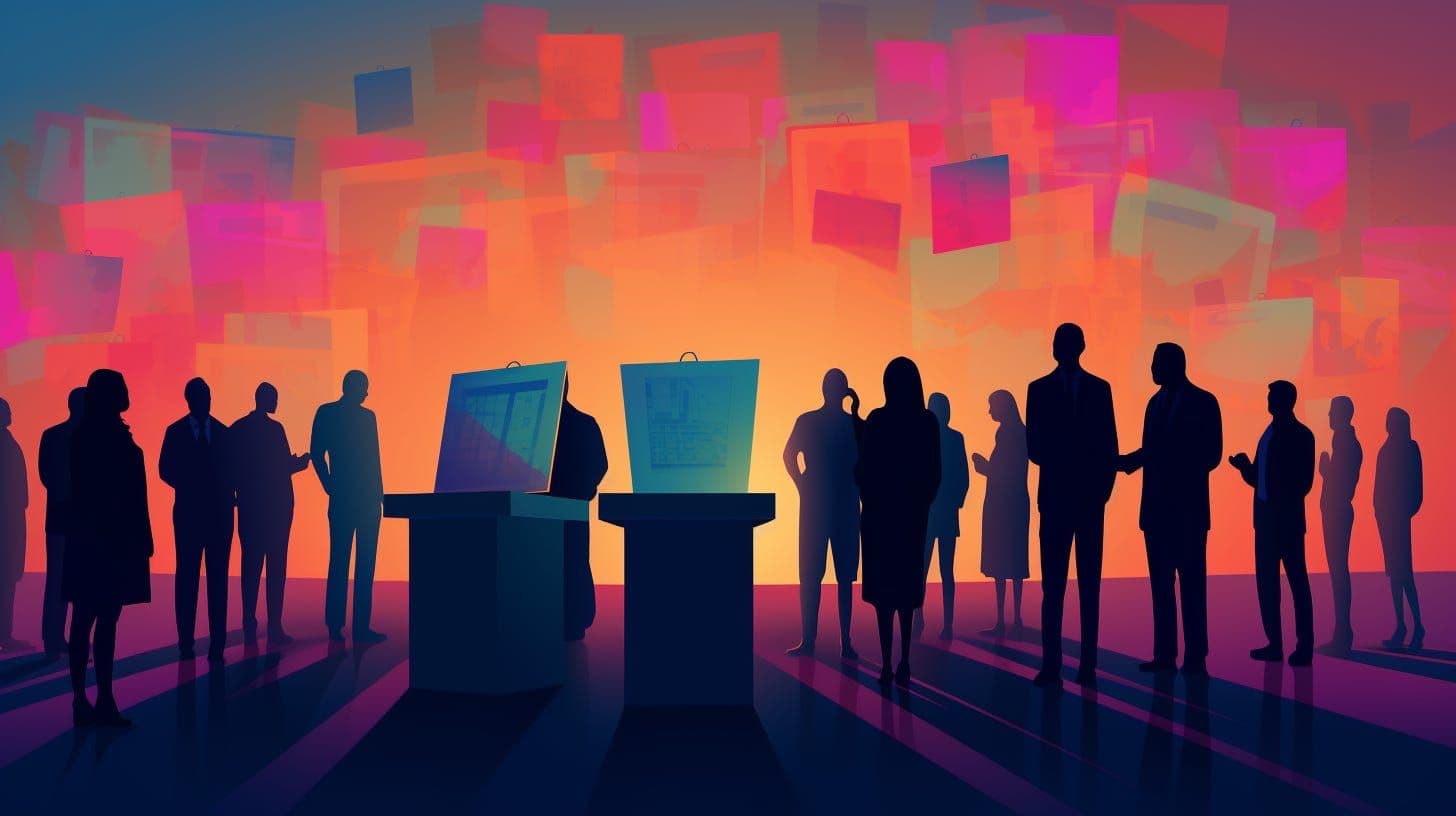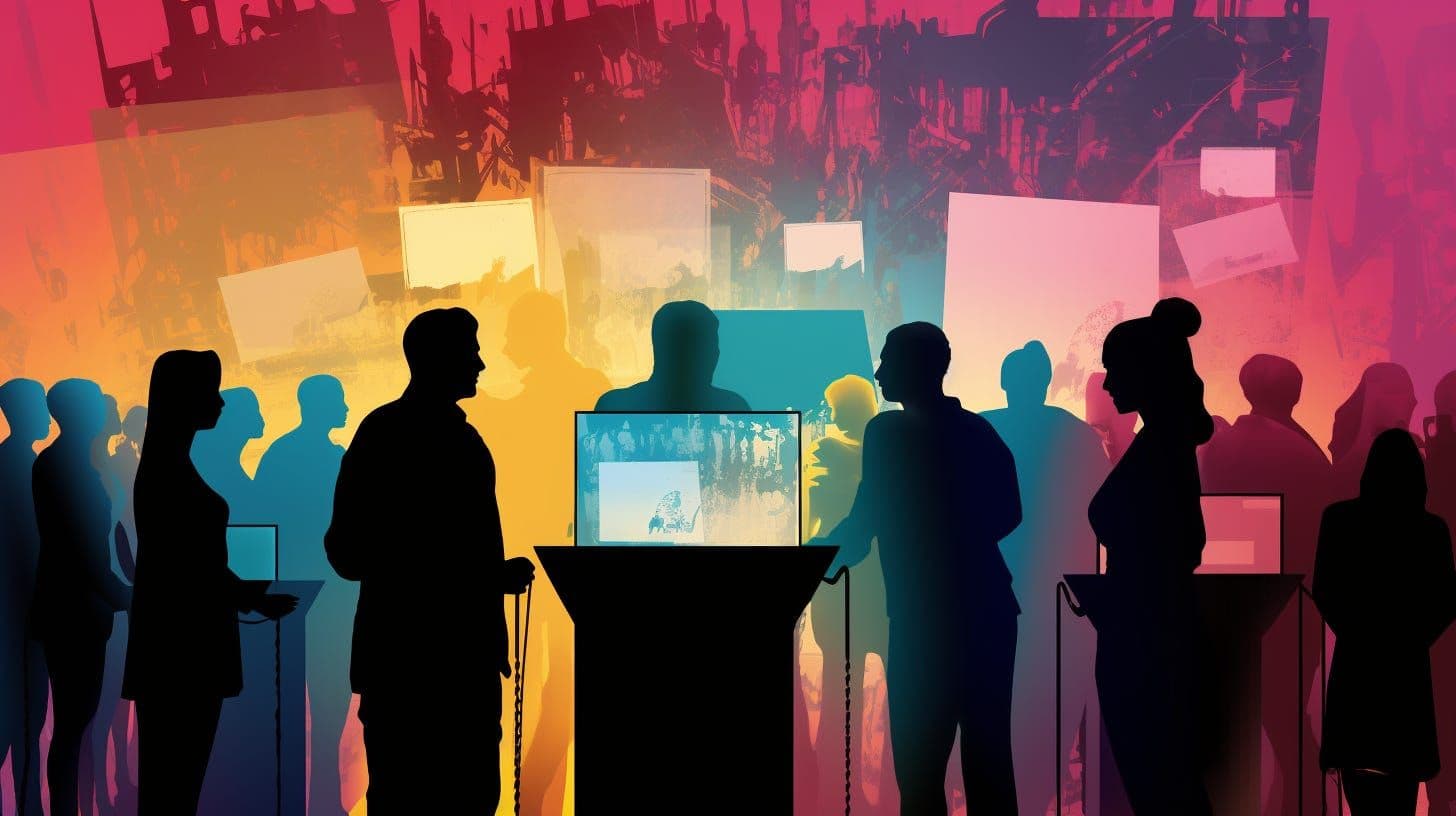South Africa Elections, An AI Case Study
Microsoft Elections Communications Hub worked with election authorities and campaigns. Here's what we learned.

The first US presidential debate mentioned AI, zero times. And crypto zero times. An observation only, amid everything else…
2024 is a major year for elections, with over 60 countries heading to the polls. That’s nearly half the world’s population getting a say in how their countries are run, according to Statista.
Election Benefits of AI:
- Direct voter engagement - AI can interact with voters through more personalized messaging
- Transparency and accessibility - chatbots provide instant info on polling locations, candidate platforms, and voting procedures.
- Better Data Management - efficient collection, storage, and analysis of electoral data can help officials make quick decisions and spot trends easier
- Efficient election administration - AI can handle large datasets at rapid speed, reducing human error and ensuring accurate and speedy results.
But …
AI algorithms can be manipulated to favor certain candidates or parties, either intentionally or unintentionally. Biases in AI systems can arise from the data used to train them or the algorithms’ design. This can reinforce existing forms of discrimination, prejudice and stereotyping. Biased AI algorithms could unfairly influence voter behaviour, compromising the fairness of the electoral process - UN

Election Risks
- Disinformation - AI makes disinfo more believable and emotionally impactful, in turn making it harder to detect and counter.
- Deepfakes - highly realistic but fake audio, video, and images, misleading voters by making people appear to do or say things they never did.
- Sophisticated Tools - it’s getting harder and harder to tell between real and fake as the tech gets better.
- Privacy Concerns - collecting large amounts of personal data means there needs to be strong data protection measures to maintain voter trust and comply with privacy laws.
So…
- How do we make sure AI systems are free from bias and do not unfairly influence election outcomes?
- Who will be responsible for overseeing AI use in electoral processes to ensure transparency and accountability?
Case Study: Microsoft & South Africa’s Election
Microsoft Elections Communications Hub worked with election authorities and campaigns in South Africa by using Microsoft security and support teams leading up to the election.

Global Outlook
The Alan Turing Institute looked at 112 national elections since January 2023 and found something pretty interesting: AI was only used in 19 of them. AI didn't seem to change election results much then, but they have a warning for the years ahead:
Things such as an erosion of trust in governments and information sources, deepened political polarization, the kind of consolidation of echo chambers. All of these things, I think, deepfakes and AI threats are just enhancing
Finally, when it comes to AI and elections, we should not be reactive - need to be proactive here. It’s also the only way we will keep up with growth in technology.
Interested to learn more?
Sign up today to get notified on the future of communication and AI
More from the blog
Blinks: A crypto game-changer for content creators?
It breaks down the barriers between Web 2 and Web 3. It’s revolutionary, user-friendly and can catalyze mainstream adoption.
Excuse Me, No! Plus a guide to generative AI video tools.
The best statement of the week is from Dr. Ngozi Okonjo Iweala, WTO Director-General: "Excuse me, NO!"
Spotlight on Women in AI
Plus, our work on chatbot Wanja demonstrated quickly that the LLMs provided by Open AI are not up to scratch
Open AI's Own Goal and Women's Servitude in AI Voices. Plus, a summer of super AI from Google and Microsoft
Each week, we bring you Embedded. This will be our news and interview series. We are working on the 10-part podcast season in the rundown.